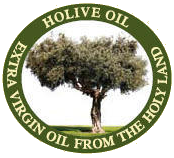
The Parable of the trees begins with the olive for good reason
Share
The Parable of the Trees begins with the olive tree:
"One day the trees went out to anoint a king for themselves. They said to the olive tree, ‘Be our king.’ “But the olive tree answered, ‘Should I give up my oil, by which both gods and humans are honored, to hold sway over the trees?’" Judges 9:8-9
The lesson is that usefulness is more valuable than honor. But we can also learn that throughout history, and certainly in Biblical times, olive oil has been a very precious product indeed!
Today, around the world there are around 800 million olive trees planted on about 20 million acres. Some of the olives are used to make olive oil and some canned for eating whole. Global olive oil production is about 5.5 billion pounds per year.
Most of the world's olive oil - about 80% - is made in Spain, Italy, and Greece. About 75% of the world's olive oil is eaten in Europe, mainly in the Mediterranean countries. Greece's annual consumption of olive oil is about 44 pounds per person, in Italy and Spain it's 24 pounds, in the United States it's just 1 pound per person! The consumption of olive oil is steadily increasing because more people are adopting healthy eating habits.
The methods of extracting olive oil have not changed for thousands of years and are based on crushing, pressing, and separation. Modern mills use mechanical methods that include crushing machines and pressing machines. In Israel, there are still some traditional mills. The roller is rotated by an electric motor that replaced the donkey.
International quality standards have been established for olive oil by the International Olive Council (IOC), which has set strict quality standards for olive oil. Olive oil is fresh fruit juice and as such, it can oxidize in the absence of proper processing and storage conditions. Oxidized oil does not taste good! A low acidity percentage indicates the quality of the cultivation, harvesting, and oil extraction.
Some olive oil terminology:
Extra-virgin olive oil is defined as "excellent extra-virgin" olive oil that is unprocessed and produced under heat conditions of up to 95°F without any further treatment or additives, and with oil acidity not exceeding 0.8%.
Cold pressing indicates direct oil extraction from the fruit using pressing, and not through a heating process that may harm the nutritional value of the oil. For high quality look for cold pressed extra virgin olive oil.
Refined olive oil is olive oil that has undergone an industrial refining process to reduce acidity and eliminate any taste defects, and is essentially a low-quality processed product. If you are looking for a high quality olive oil AVOID refined.
Holive Oil is produced with great attention to quality. The process is meticulous and involves careful monitoring of the entire production process to ensure the highest quality olive oil is produced. Olives are hand-picked, and then immediate taken to the mill for cold pressing at the hands of a master milner. The result is a top-notch olive oil with an excellent fruity flavor, aroma, and mouth feel that keeps our customers coming back for more.
To try some Holive Oil, order here:



